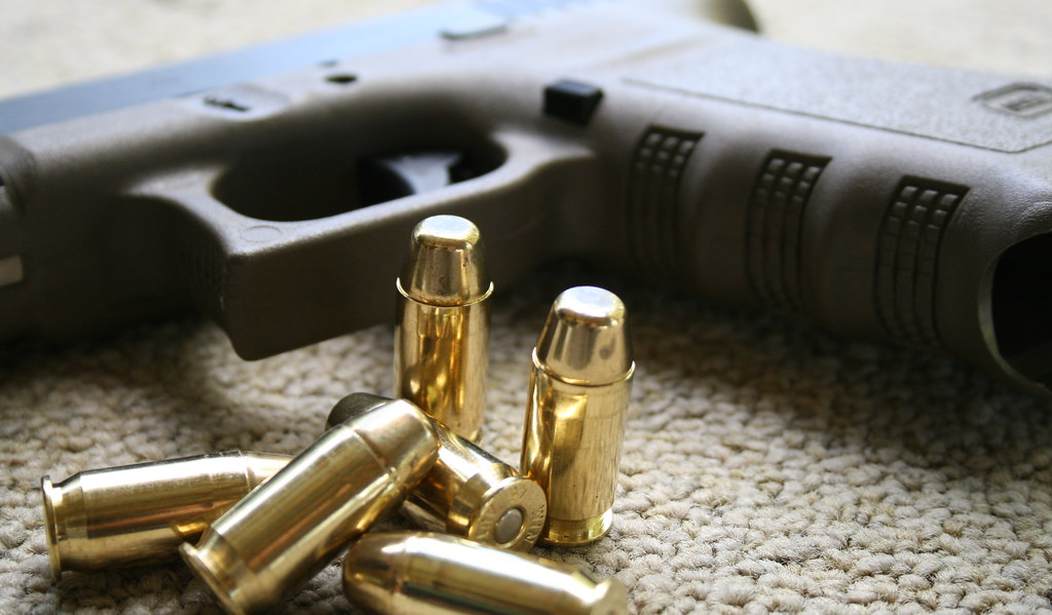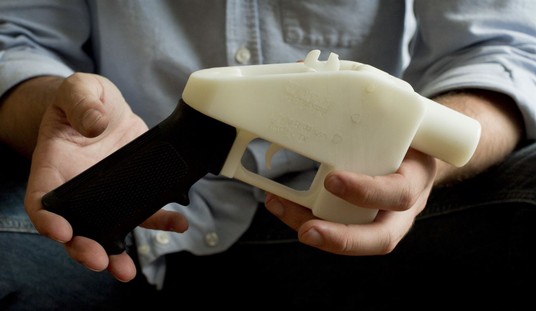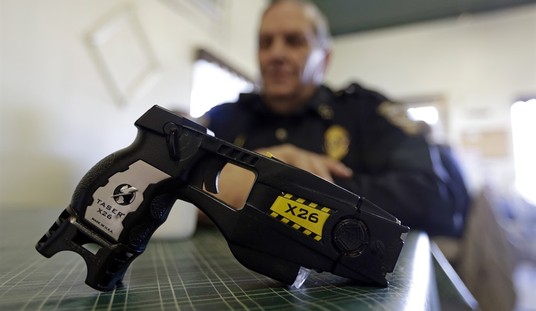If someone buys a car with the intention to use it as a getaway vehicle in an armed robbery, is Toyota or Ford responsible for that misuse?
Obviously not.
While companies are responsible for their products hurting consumers--namely their own customers, but not exclusively so--they're not responsible for people being stupid, evil, or somewhere in between. What's more, if you ask people, the vast majority would agree that it's not their fault.
Yet gun companies don't get the same benefit of the doubt.
An op-ed at the Chicago Sun-Times tries to make the case that they are, and it's time to disabuse people of that notion.
Do corporations have a responsibility to society if their products are being misused and causing extreme harm? We have faced this question before. In 1965, activist Ralph Nader wrote a book critiquing the auto industry’s safety record. In response, Congress passed a law that led to major improvements in car safety.
Today, the same question arises regarding the gun industry. Gun manufacturer Glock produces a popular handgun that is easily converted to an illegal automatic weapon capable of firing up to 1,200 bullets per minute. Police in Chicago and elsewhere are seeing more and more of these guns in our streets, churches, parades, grocery stores, streets, homes, essentially everywhere.
Except it's not the same question. Not even remotely.
Nader exposed how car companies were building vehicles that injured consumers. They were making products that were unsafe for the user.
Glock makes handguns that are anything but. They're safe, reliable firearms that are pretty much the most popular handgun on the market today. Yet because they are so popular, they're more likely to be stolen or picked up via a straw purchase, then misused criminally.
How is Glock responsible for that?
"But the Glock switch!!!!"
Oh, shut up.
Full auto switches are illegal products. It's illegal to have one and it's illegal to put one on a firearm. It's not Glock's fault that some people are getting them and using them.
At the University of Chicago Medicine Trauma Center where I work, we are seeing more and more victims with multiple gunshot wounds. Most of them are young Black males caught in the web of limited opportunities, structural violence and the illegal economy.
We may soon find out if Glock has any responsibility to stop the illegal conversions of its guns. The City of Chicago is suing the company under a new state law aimed at holding the gun industry accountable.
Why mention most of the victims are young black males? Why is that relevant? Are you saying their lives are more important than others, or that we should be more concerned about them than others?
The truth is that the sex and race of the victims is largely irrelevant. What is relevant is whether or not Glock is actually responsible for this.
But since the author is apparently a doctor, I'm sure they'll be reasonable, right?
I salute the city and the state for these efforts, but I’m not holding my breath. Historically, the courts have favored gunmakers over gun safety and have interpreted the Second Amendment to basically allow anyone to own weapons of war.
Oh, maybe not.
Still, let's see how he figures Glock is actually responsible; or actually, how all gun manufacturers are responsible.
In this era of smart phones, space travel and artificial intelligence, gun manufacturers can make guns safer with, for instance, technology to keep anyone but the gun owner from firing a weapon. Can they make a gun that cannot be modified into a weapon of war?
We are all at risk from gunmakers’ failure to act, including police, who are expected to confront and arrest individuals armed with automatic weapons. The only winners in the arms race are the gun manufacturers.
This problem is not limited to cities like Chicago. In fact, the highest per capita murder rates in the country are in southern and western states like Louisiana, Mississippi, Alabama and New Mexico.
It may be naive to think Glock would voluntarily modify its products to make them safer. It may be wishful thinking to believe the broader gun industry would hold itself accountable for the safety of its products. I don’t know if public pressure — including from law enforcement — would prompt action.
So because they're not chomping on the bit to enact a piece of technology that may actually cost their customers their lives--technology easily defeated by criminals as we've seen with things like cell phones, it should be noted--they're somehow responsible for the actions of adults who willfully engage in criminal activity?
That's downright pathetic.
Glock and other manufacturers aren't embracing so-called smart gun technology because it doesn't work. Even if it did, a gun isn't generally like a cell phone. A cell phone is a device meant to be used by a single individual. In my family, the only one who lacks a phone of their own is my daughter, and she's too young to have a use for one except as an access point to the internet.
Yet families often have one gun for the household to use to defend themselves. When I'm home, yeah, I'm the guy who is going to grab the gun, but when I travel by myself, I often carry a firearm with me and leave one at home for my wife or 22-year-old son to access if needed.
Why would a company add a biometric lock on such a firearm when it may actually prohibit others in my home from defending their lives with it?
See, the good doctor here is under the impression that he understands guns and how they're used by responsible gun owners, all because he reportedly sees the ramifications of criminal misuse of firearms. He isn't.
Look, Glock has made essentially the same firearm since 1982 and it's only just now become an issue. That's not Glock's fault. The responsibility rests on those buying, selling, and using full-auto switches. That's who is always responsible for so-called gun violence, so stop trying to blame companies for what others do with their products.








Join the conversation as a VIP Member